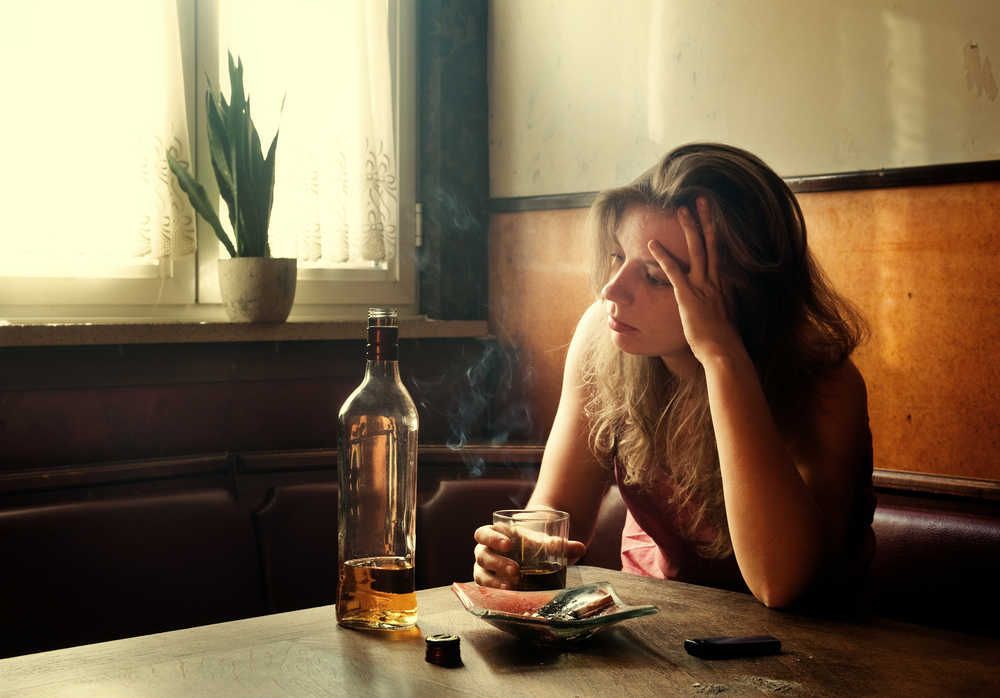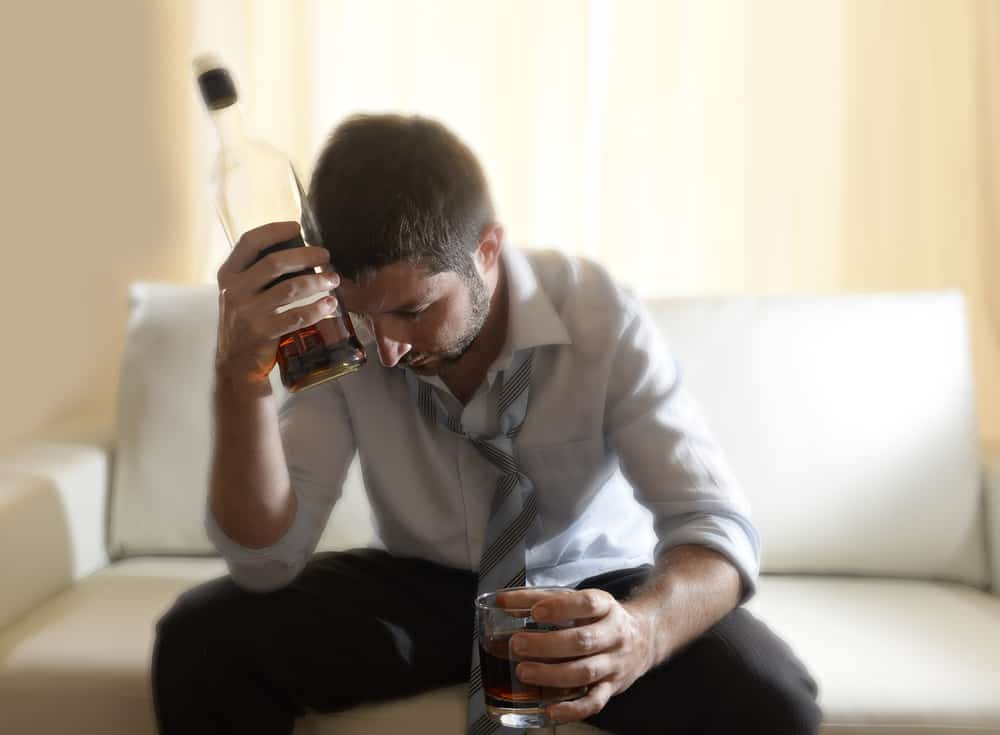
It can be seen that in people who develop endogenous depression, which is characterized by a malfunctioning organism, particularly in the brain and nervous system, binge drinking is a common activity. This is because they want to cheer themselves up, they want to fall asleep faster. There are also episodes of self-harm with alcohol.
People with depression equate alcohol with a measure that guarantees relaxation, and also notice that they forget about their problems for a moment with the use of percentage drinks. Unfortunately, reaching for soft drinks to improve your situation is very fatal. Whenever there is a sobering-up point, the emotional state of the depressed person worsens, destroying their health as well.
First of all, alcohol is a toxin that, if consumed excessively, leads to constant poisoning of the brain, as well as the development of alcohol addiction.
Find drug rehab center near you – NPAddiction.com
What Is Alcohol Depression
Alcohol depression is a group of mental disorders that are characterized by constant depressed mood, guilt and powerlessness associated with alcohol dependence. While men are believed to be the largest group of people suffering from alcoholic depression, the latest data show that there are more and more cases among women each year. Alcoholic depression has two types, the primary type and the secondary type.
About 10% of all cases of alcoholism and depression occurring together are primary depression, that is, depression that developed prior to the addiction and was the cause of it. The remaining 90% of cases of depression fell ill under the destructive influence of alcoholic beverages.
In medicine and psychiatry there is also talk of the so-called dual diagnosis. This means that a depressed person who consumes alcohol uses alcohol to help them fall asleep, soothe their nerves, or calm down. Due to the change in alcohol tolerance, alcoholic drinks work less and less, which means that there is a need to reach for more and more of them. As a rule, such a person feels even worse the next day. So he reaches for alcohol to feel better, leading to a vicious cycle of addiction.
Does This Mean That Alcohol Is Only For Those Who Are Healthy And Do Not Have Seasons Of Sad, Melancholy?
It should be remembered that, like everything, alcohol is for people. The point is to treat it wisely and in a common sense. It is different for you to drink a glass of wine or a drink occasionally, from time to time, and it is another thing to systematically use this type of stimulant. It is worth adding that in people suffering from depression, even the occasional drinking of small doses of alcohol results in a deterioration of well-being. In turn, people for whom alcohol does not work so badly, in social situations, sometimes drink a symbolic glass and they are unlikely to do much harm to themselves.
The problem is when alcohol is a means of enabling, for example, falling asleep, well-being and normal functioning. Regular consumption will always lead to permanent addiction. Unfortunately, great importance can be attributed to pop culture, where a male figure is often presented in movies, series or books, who looks for solace in alcohol or a solution to his problems.

For example, work failures as well as relationship breakdown generate excessive alcohol consumption. Interestingly, almost every time the next day, the hero of such a fictional work experiences the symptoms of a hangover, but only in the physical aspect, and in the psychological aspect he feels a definite relief. It is worth asking yourself: is such a scenario even possible?
A single alcohol overdose and getting drunk is probably known to the vast majority of humanity from personal experience. There is nothing especially wrong with it – apart from the fact that alcohol as a toxin poisons the body and reduces psychophysical efficiency, nor especially good – except for a literally temporary detachment from all discomforts.
In such a situation, it makes little sense to look for the seriousness of the situation, as long as it does not generate further drinking. It happens that a person looks for an opportunity to release emotional states and react to certain situations. In an act of desperation, he reaches for the easiest possible option, i.e. alcohol, but not having much experience in this aspect, he gets drunk once.
Just like in the case of a one-time jump, one should not look for features of alcoholism, so with the daily evening drink, regardless of the reason for drinking alcohol, one should be aware of the consequences and destructive influence of ethanol on the general functioning of a person, gradually worsening the situation of such a person every day. Mental health deteriorates, which is crucial in the aspect of people suffering from depression or prone to depressed mood.
